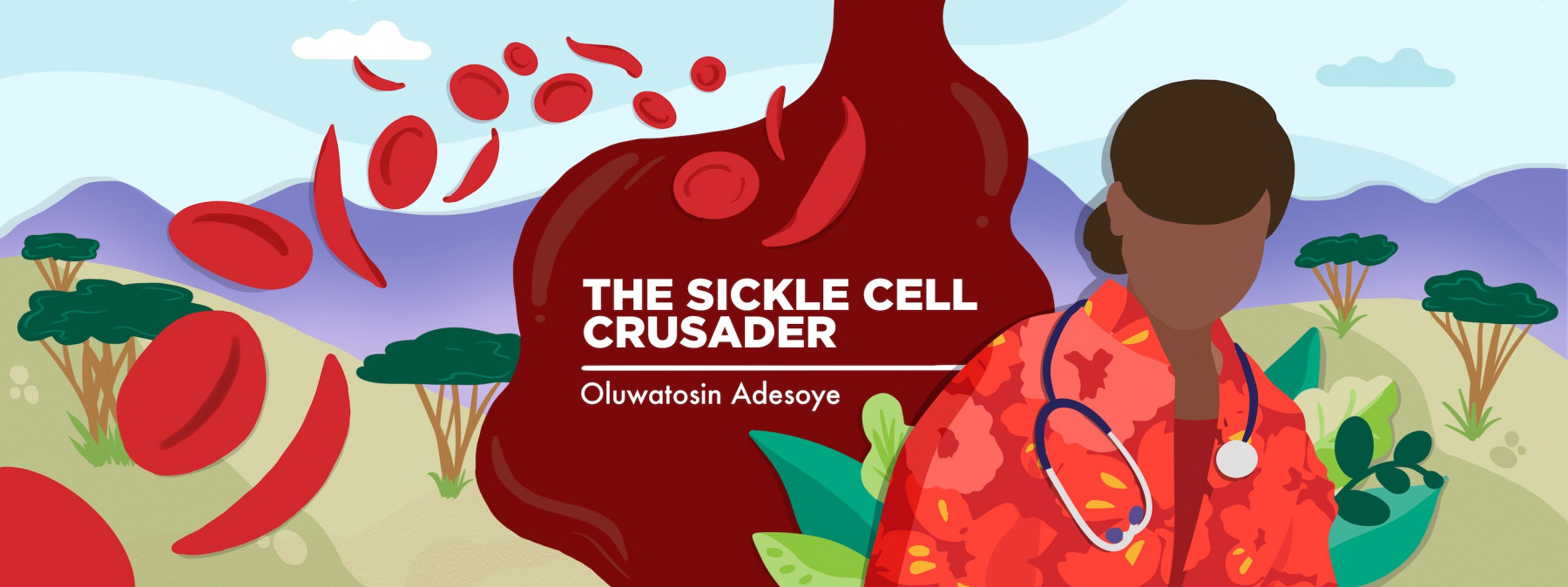Some beneficial lessons from living with sickle cell disease
What I've learned about resilience, empathy, support, and happiness
Written by |

Living with sickle cell disease is not a proverbial bed of roses; instead, it’s a journey of twists and turns. Yet I’m grateful for the experience. It’s imparted invaluable life lessons that have shaped me into the woman I am today, and that woman is a better human being. Its challenges have exposed me to diverse experiences, broadening my understanding of life.
Sickle cell, for instance, has forced me to navigate many contrasting extremes. I’ve experienced the freedom of walking unaided as well as reliance on a wheelchair. I’ve known academic success as well as failure. I’ve looked healthy while feeling very ill.
Thanks to sickle cell, I’ve had a taste of all such worlds, so I’m able to relate to situations beyond my own. I’m able to put myself in others’ shoes before commenting, deciding, or judging. I’m able to see how another person’s challenges could be mine. Thus, I’m more empathetic and able to treat others better.
Moreover, living with sickle cell has revealed my inner strength and resilience. There’s a saying, often attributed to singer Bob Marley, that resonates with me deeply: “You never know how strong you are until being strong is your only choice.”
As I matured, sickle cell began to present various complications, including being diagnosed with tuberculosis as a child; dealing with hypothyroidism, or an underactive thyroid; and enduring more than a year of being bedridden with avascular necrosis, when the bone stops getting the blood supply it needs.
It’s hard to fathom how I managed to overcome these challenges, but I did so with resilience. Although I initially had a fear of further complications, I learned to confront my fears and navigate my journey as the warrior I am.
Additionally, experiencing psychosocial challenges, such as depression, has highlighted for me the importance of having a support system, especially family, friends, and the sickle cell community. So many times when I’ve been down, out, and given up, my family and friends gave me hope to keep fighting.
I remember a particular near-death experience I had. I was on the hospital bed, waiting to breathe my last and not willing to fight anymore. My family and friends encircled me, fighting fervently for my survival. Their love and determination to see me live overwhelmed me, making me realize the impact my absence would have on them. At that moment, I chose to fight for my life once more, and I emerged victorious.
Finding support, gratitude, and happiness
Family and close friends are crucial support systems in the battle against the toughest challenges posed by sickle cell. It’s also beneficial to engage with sickle cell support groups for education, awareness, and psychosocial health.
Furthermore, sickle cell disease has taught me to live life on my terms, without conforming to societal expectations. I set personal goals and strive to achieve them without comparing myself with others. Sickle cell disease affects people differently, so comparing the health or achievements of one sickle cell patient with another can lead to disappointment. It’s vital to respect everyone’s unique journey without judgment or comparison.
Sickle cell disease has also instilled in me a sense of gratitude, allowing me to appreciate and love myself more deeply. Despite the challenges I’ve faced, I feel grateful when I reflect on my accomplishments. Knowing that I serve as a beacon of hope for others with sickle cell fills me with joy.
Through these challenges, sickle cell disease has helped me discover my life purpose: educating, advocating, and creating awareness about sickle cell disease. I’ve also established the organizations Sicklelive Foundation and Sickle Cell Celebs, which cater to the needs of patients globally by fostering education, awareness, and empowerment. The foundation is also involved in sickle cell research.
Living with sickle cell has also reshaped my views on life and death. My greatest aspiration is to maintain my happiness throughout my lifetime. I once feared death, but I no longer do. What frightens me instead is living a life of permanent sadness.
To my fellow sickle cell warriors, I urge you not to lose your happiness forever. Instead, take the positives from living with our disease, enjoy life, and remember that it’s beautiful.
Note: Sickle Cell Disease News is strictly a news and information website about the disease. It does not provide medical advice, diagnosis, or treatment. This content is not intended to be a substitute for professional medical advice, diagnosis, or treatment. Always seek the advice of your physician or other qualified health provider with any questions you may have regarding a medical condition. Never disregard professional medical advice or delay in seeking it because of something you have read on this website. The opinions expressed in this column are not those of Sickle Cell Disease News or its parent company, Bionews, and are intended to spark discussion about issues pertaining to sickle cell disease.







Rodney Jackson
Thanks for the words of encouragement. I have 2 sons with Sickle Cell anemia.
Harry Williams
What a fantastic summary of life as a Warrior! I genuinely commend and celebrate with you as you have found the key to a successful and thriving life. I can truly empathize with all that you spoke about in this article. Thank you for always inspiring and motivating all Warriors. I pray that all your dreams, desires, goals, and a quality life continue to be bestowed upon you. Blessings!